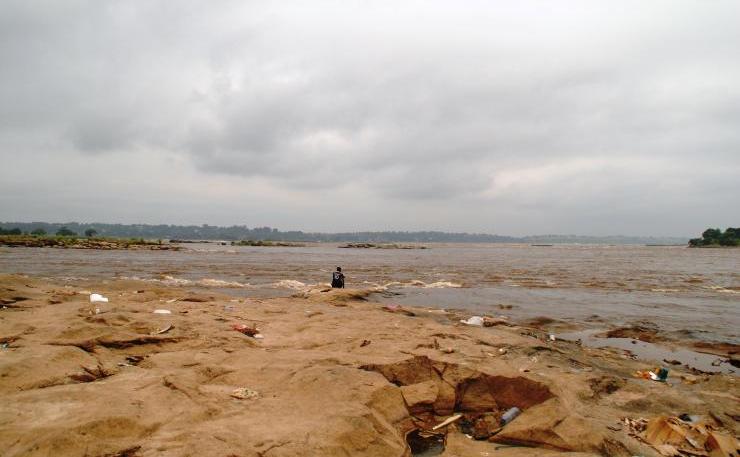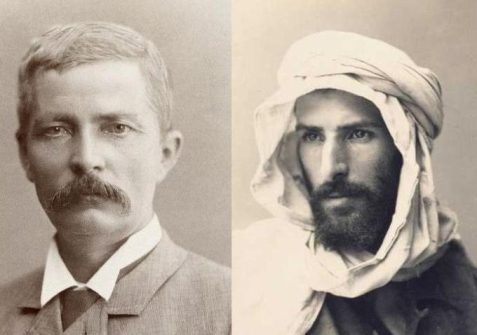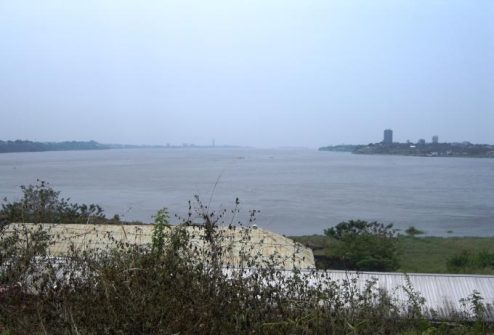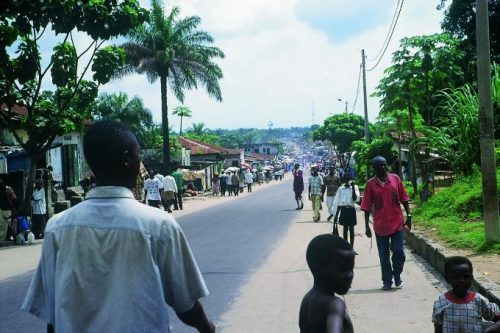Kinshasa-Brazzaville: Separated Twins.

The Congo River flows between Kinshasa and Brazzaville. The distance between the two capitals is so small that they seem like a single city. With a common history, they have not grown at the same rate.
At the end of the 19th century, the European powers divided the African continent between them. The Congo region was divided by two colonial powers: France on the north bank of the Congo River and Belgium on the south bank. Though their colonial strategies were different, their urban policies were very similar.

Henry Morton Stanley (L) and Pierre Savorgnan de Brazza (photo: Paul Nadar)
In 1880, the Italian-French Pierre Savorgnan de Brazza, sent from France, founded the city of Brazzaville. In 1881, the Anglo-American Henry Morton Stanley, sent by the Belgian King Leopold II, founded Léopoldville, the current city of Kinshasa, on the left bank,
just opposite Brazzaville.
According to the French historian Thierry Buron, the area was frequented by buffaloes, elephants, and hippos. It was a series of villages inhabited by fishermen in simple thatched mud huts, alongside bamboo huts.
The river marked the border between the Kongo and Teke kingdoms. Exchanges between the inhabitants of the two shores were facilitated by the fact that they spoke the same language, Lingala, and had the same habits and customs.
Segregated at birth
Leopoldville and Brazzaville were built on the principle of social and racial separation between whites and blacks. On the one hand, the European neighbourhoods housed the ruling class. There were factories, trading posts and residences for whites. On the other side, there were the black neighbourhoods, which were villages.
In general, these were floodplains with traditional markets. In Brazzaville, blacks settled in the villages surrounding the white neighbourhood, which the French sociologist Georges Balandier called “the black Brazzavilles”, particularly Poto Poto, Bacongo, and Makélékélé. It was a series of rudimentary villages with no services. They were separated from the white-inhabited ‘city’ by a sort of ‘no man’s land’.

The two closest capitals in the world are separated by just four kilometres of fresh water. File swm
According to Belgian historian Emile Capelle, not all blacks had the right to live in Leopoldville. In fact, to slow down the rural exodus, the Belgian colonists applied severe measures. The arrival and departure of villagers to the city were monitored. Blacks moving to the city had to provide proof of registration, a departure and exit permit, a residence permit, and a work permit. Although racial segregation has been abolished, stratification is visible in both cities, although today skin colour has been replaced by another criterion: wealth.
It is wealth that decides the neighbourhood in which to live.
Currently, in the old white neighbourhood, which is the municipality of Gombe in Kinshasa, and in that of Plateau in Brazzaville, live, with few exceptions, the people who direct the state apparatus, public and private companies and international organizations, the embassies,
and high-income people.

Kinshasa. People say: “Let’s go to the city. When they return home, they say: let’s go back to the village”. File swm
When the inhabitants of municipalities such as Lemba, Matete, Selembao, Bandalungwa, etc. go to La Gombe for work, to shop or for other administrative procedures, they say: “Tokei ville“, “let’s go to the city”. When they return home, they say: “Tozongi ndako” or “Tozongi mboka“. “Let’s go home” or, more simply, “let’s go back to the village”. (Open Photo: A young man sitting on the bank of the Congo River in Kinsuka. Kinshasa. Lwanga Kakule)
L.K.



